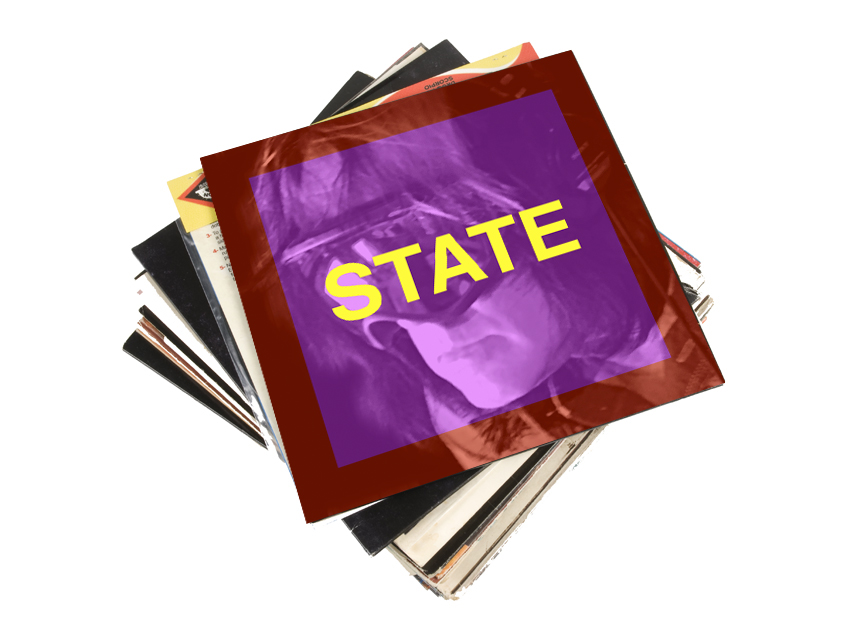
Todd Rundgren discusses his new album, State, track-by-track
Over time, most rock stars become very good at accumulating things – houses, ex-wives, cars, and especially instruments and studio gear. Legendary rocker Todd Rundgren is exactly the opposite, at least when it comes to the latter two examples: He's pared his music-making essentials down to a single laptop and guitar, and that's all he used to record his new album, State.
"I have an audio I/O box to go with it, but basically everything is in the laptop," Rundgren says. "I don’t use any real vintage hardware any longer. That’s always been the object as far as gaining control of the studio environment, going back to when I built my first studio, Secret Sound, in New York City. The whole point was to not have to pay studio bills anymore and not be looking at the clock. But it was also to have the liberty to do anything I wanted with the equipment that I use and to use it for creativity, rather than just using the studio to capture pre-existing instruments.”
Key to Rundgren's recording process is Propellerhead Reason. He has utilized the software for eight years now, and with its expanded recording capabilities, he's been able to do away with Pro Tools. "When I first started with it, it had no recording capabilities," he explains. "It was just all virtual synthesizers. Now that I can record with it, I can do everything on my laptop with Reason and all of the various plugins and rack extensions that are available in it."
The heavily electronic nature of State was inspired, in part, by Rundgren checking out some new music – he lists Skrillex as one current artist he researched. But he also says that hearing younger bands praise his earlier work caused him "to use the virtual equipment in more creative ways. I had to go back and say, ‘What was I doing that was different than what I’m doing now?’ As it turns out, I was just being more experimental with the facilities. I think that’s what has been appealing to a newer audience."
When he brings State on the road (the tour starts 5 May in Woodstock, New York), Rundgren will be playing guitar, and he'll be joined longtime band mates Prairie Prince on drums and Jesse Gress on guitar. "There will be some kind of human interaction and improvisation between the players," he says, and then adds with a laugh, "It won't all be machinery."
State will be released on 9 April. On the following pages, Rundgren walks us through the album track-by-track.
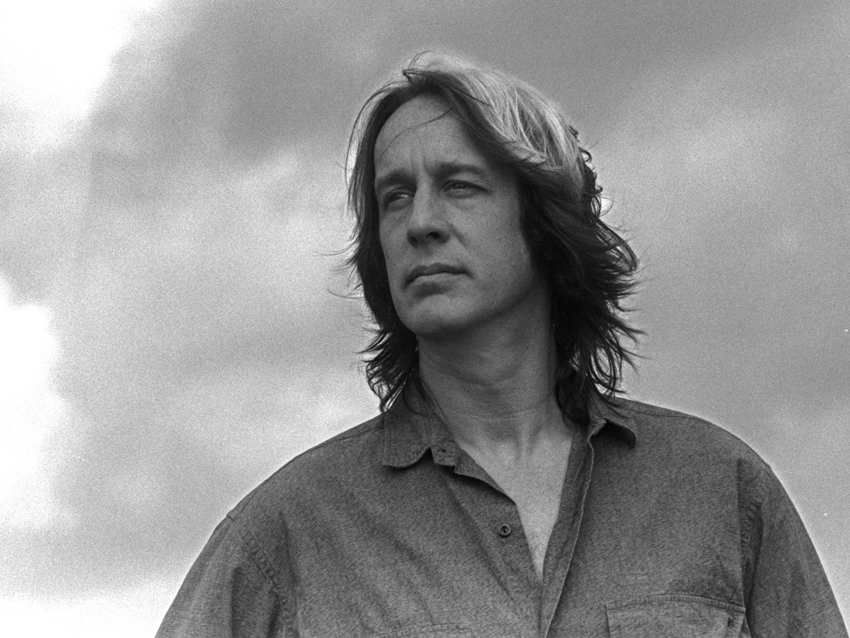
Imagination
“I wanted to do something arresting at the beginning of the recording because a lot of this is meant to be performed live, and it’s usually improvised to a certain degree live. I thought it was important to get a lot of signature aspects to the record on the track, particularly the electronic patina and the ways of controlling and hearing the instruments, especially in the bottom end.
“I don’t know what the inspiration for most of songs really mean until I finish them. For the most part, I’m going for a visceral impression, and I write the words last. I may have a working title, so I had the title ‘Imagination,’ but I wasn’t sure until I got to the end of the process that the song is about having a lack of imagination. [Laughs] In that sense, a lot of the songs are cautionary tales in that they appear to be about one thing, but in reality they’re about something else.
“The whole idea to the vocals is to try to lull everybody to sleep, but then there’s the loud section to wake everybody up. [Laughs] There’s also just an epic element to that to set a tone. I think it’ll work well live.”

Serious
“I'm not using a talk box; rather, it’s some pitch shifting and a little bit of sound manipulation, which can be done in real time. There’s a thing called a Vocoder, which does the same thing as the so-called ‘slobber box’ or the old ‘drool hose.’ [Laughs]
“The song is about finding yourself in a situation where you have to be the grown up, where nobody else is stepping up. It’s not necessarily about anger, even though it seems to indicate that the person singing is upset. Essentially, it’s about taking control of things when nobody else will.”
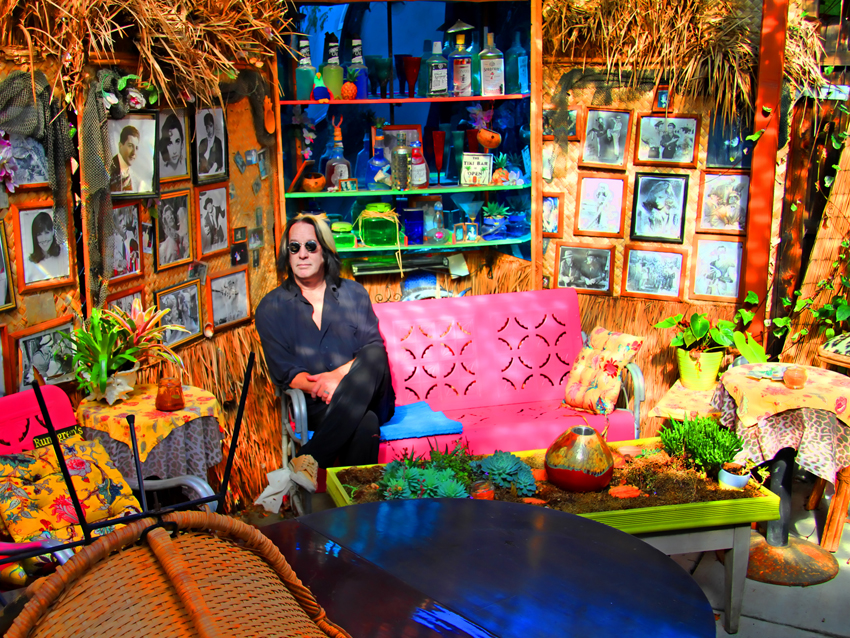
In My Mouth
“In some ways, it defies me even knowing what it’s about. A lot of these songs have dual potential meanings in the lyrics, as well as the title of the record, ‘State,’ which is a noun and a verb and can be used in all kinds of ways. The idea was to try to create a sexy atmosphere, kind of R&B-ish. What it means exactly can be open to interpretation.
"It’s no longer necessary to slave over the vocals. I don’t sing the lyrics until I write them, and singing is the very last thing I do. I record the entire track and then I worry about lyrics and vocals. The music will suggest where the words are going to a certain extent.
“A lot of people will start with a clear idea to try to draw things out of the subconscious; I come from a completely different direction: I try to capture as much from my subconscious as possible, and then I try to give it some meaning.”
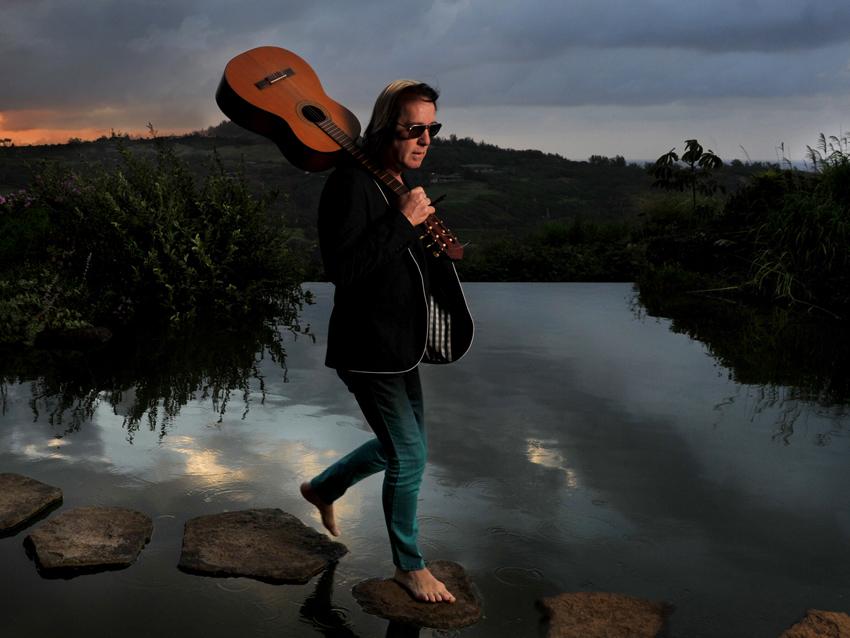
Ping Me
“Ping Me means, as one line kind of suggests, that you don’t have to have a long conversation; you just want to know that people are thinking of you. At first I thought that the song seemed to say that you’re just too busy, which is certainly a valid way of looking at it.
“After I finished it, though, I thought that it meant that you’re really in a situation where you can’t communicate, which makes whatever little bit of communication that is possible that much more important. Like say you’re a grunt out in the middle of Afghanistan – you just can’t pick up the phone and have a conversation with someone.
“It’s a real guitar on this track; in fact, wherever you hear a guitar on the album, it’s the real thing. I’m using a Gibson Music Maker, which I bought for one of my kids, but they never ended up playing it. I had several guitars lying around. I picked up the Gibson and managed to get a good sound out of it. It’s not as if I couldn’t get a good sound with a different guitar, though.”
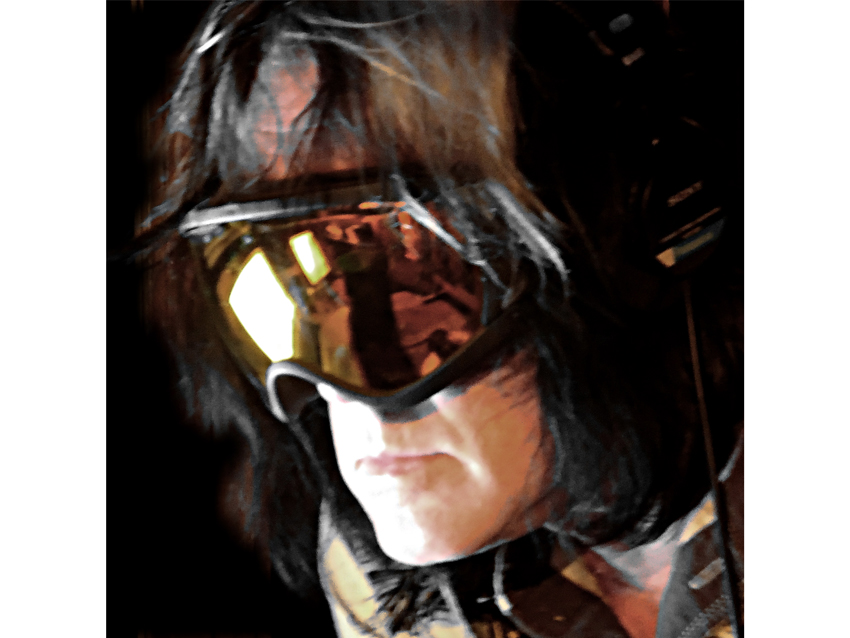
Angry Bird
“I wanted a song that sounded like a video game, and of course everybody knows the Angry Birds game, so there’s the title. But there was also the coincidental aspect of the last political season with the so-called ‘war on women.’
“I realized that the plot is the same as this war on women thing, whereas a bunch of men, i.e., chauvinist pigs, are trying to control women’s ovaries, i.e., their eggs. So the game is that the angry birds are covering their eggs. From a metaphorical sense, the same thing is happening in our politics. It might not make a lot of sense outside of the US, but that’s what inspired me.
“Beyond that, it’s the novelty song on the record.”
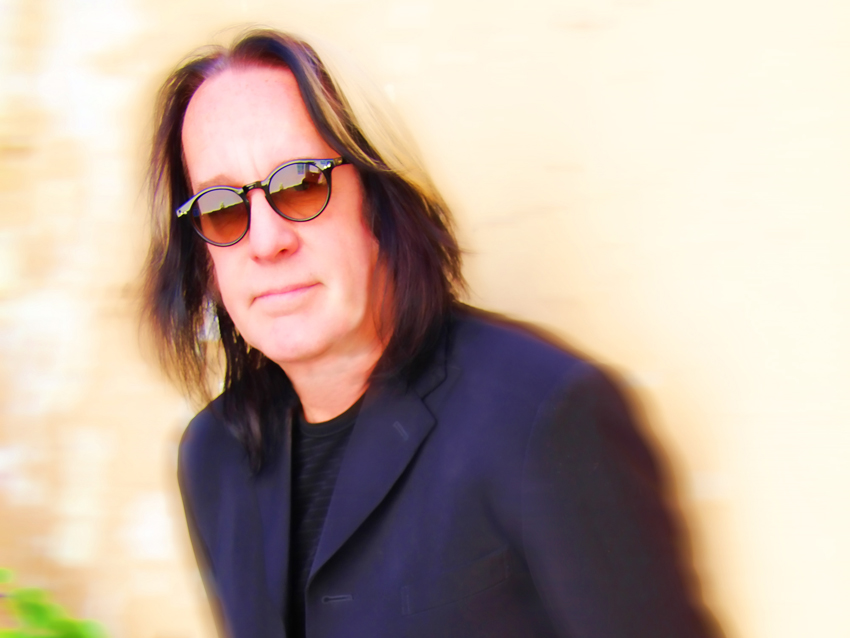
Smoke
“The sounds are all virtual synthesizers that exist in the Reason environment. Part of my research in getting those sounds involves going out and listening to a lot of different music to see what inspiration I can find. The other part is going through what are thousands of sounds to try to find a starting point, which I then modify to fit what I’m doing.
“At first, it was just a sound, a found sound; I didn’t know what song it belonged to. Eventually, it was tacked on to this thing I was doing, and the whole thing said ‘smoke’ to me. It’s one of the songs that I think will work well in a live context, because parts of it can be stretched out and manipulated.”
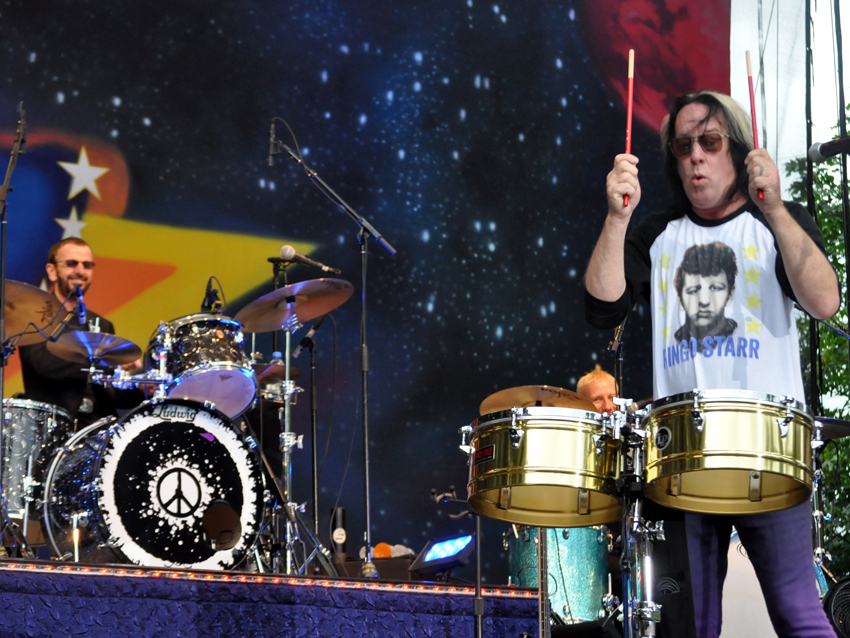
Collide-A-Scope
“It’s the most modern and metaphorical of all the material in that there’s so much happening musically nowadays, which I discovered when I went out to do my research. The advances and developments in equipment and software make a lot of things possible sound-wise that would have been difficult at another point.
“For instance, much of the song is an improvised drum performance, except the drum is just one loop. If you listen to the loop, it’s the same thing over and over again. But you use a device on it called the Bit Slicer, which allows you to re-arrange the beats, all in time. Essentially, I’m improvising a drum performance by twiddling knobs. [Laughs]
“On top of it is the Skrillex-y bass thing. The most difficult part of doing something with so many modern influences is that a lot of contemporary music doesn’t have much in the way of vocals on it. Unless I want to make myself unidentifiable, it still has to have an element of ‘me’ in it. I want to build a bigger and new audience, of course, but it still has to appeal to my audience.”

Something From Nothing
“There’s a guest vocalist on this track – Rachel Haden, who played bass with me when I did the Arena tour a couple of years ago. She has this great kind of choirboy voice. There’s very little inflection in it; it just has this pure thing. I tried to sing it myself, but I couldn’t find the place in my voice where it worked. Fortunately, Rachel was able to do it.
“They keyboard sound is supposed to be this plinky-plunky, folky Bon Iver kind of thing. The song is another one of those cautionary tales in that it sounds like one thing, but it’s really about the opposite thing.
“It seems like an exhortation to have faith in hard times, but it’s really pointing out the shortcomings of faith. If all you have is faith, then you never actually know anything. [Laughs] You never actually do anything. Reality, in the end, is a much more important thing to believe in than just things that have no substance.”
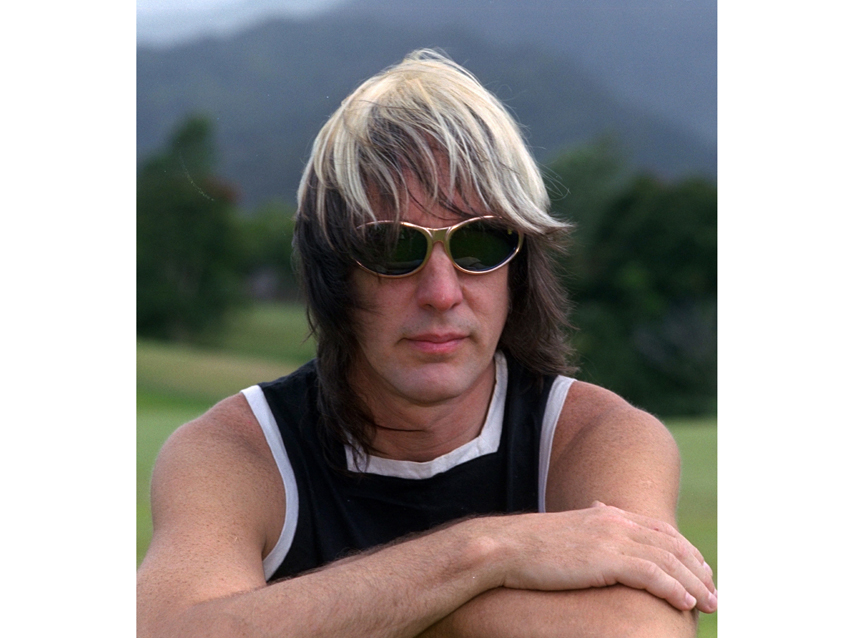
Party Liquor
“It’s kind of inspired by the dark side. Ostensibly, it’s about fun, but then things all go to hell during the course of this encounter. The song is probably going to find its ultimate realization in the live context, because when people get into a song like this, there’s no telling where I can take it! [Laughs]
“It’s a fairly easy dance setup: the ol’ four-on-the-floor bass, with most of the sound coming from the keyboard. There’s a bit of a sequenced bass line, too. While it sounds like a lot of playing, there’s really very of it - I’m using a synthesizer that has its own built-in step sequencer. So all I have to do is hold down the roots, and it sounds like this whole part is being played.
“That’s really what’s happening nowadays – trying to figure out how to turn all the drudgery over to machines so you can have the freedom to do crazy things with the end product.”
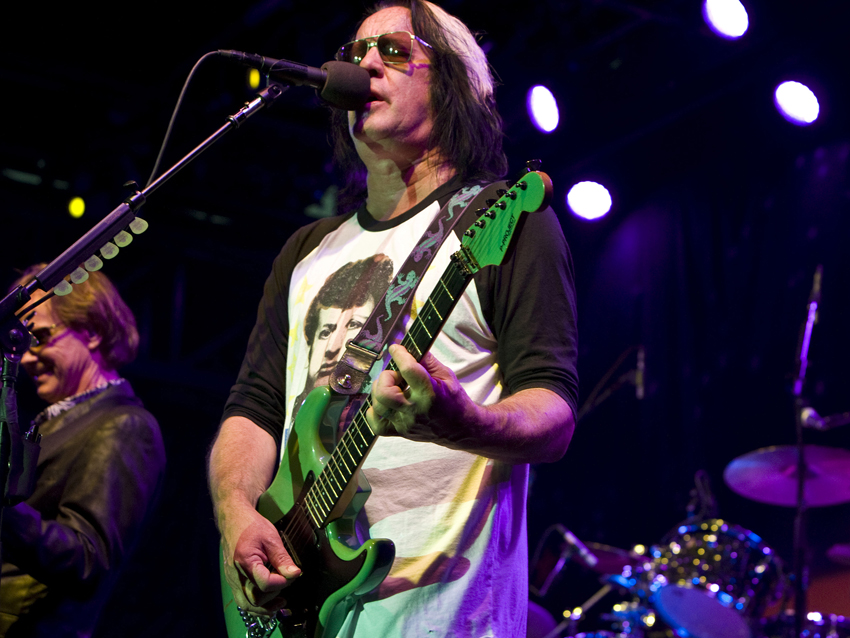
Sir Reality
“It makes a good complement to Imagination. In some ways, it’s almost a related topic, although it’s more about delusion. If it’s a solution to the delusion, I don’t know. [Laughs]
“A lot of it’s inspired by the milieu that’s around you. All during the time that I was wrapping up the album, we were also wrapping up a political season. There seemed to be so much delusion in that entire process. It’s certainly courteous to take people at their word, but when you know they’re lying, it’s no longer courtesy – it’s stupid.
“Just taking people at their word and believing that they believe what they say, in the midst that it’s so unbelievable, well, it tends to make you think that people operate under ulterior motives most of the time. Most of the time they’re trying to hide something, and either they’re hiding it from you or they’re trying to hide it from themselves.”
Joe is a freelance journalist who has, over the past few decades, interviewed hundreds of guitarists for Guitar World, Guitar Player, MusicRadar and Classic Rock. He is also a former editor of Guitar World, contributing writer for Guitar Aficionado and VP of A&R for Island Records. He’s an enthusiastic guitarist, but he’s nowhere near the likes of the people he interviews. Surprisingly, his skills are more suited to the drums. If you need a drummer for your Beatles tribute band, look him up.
